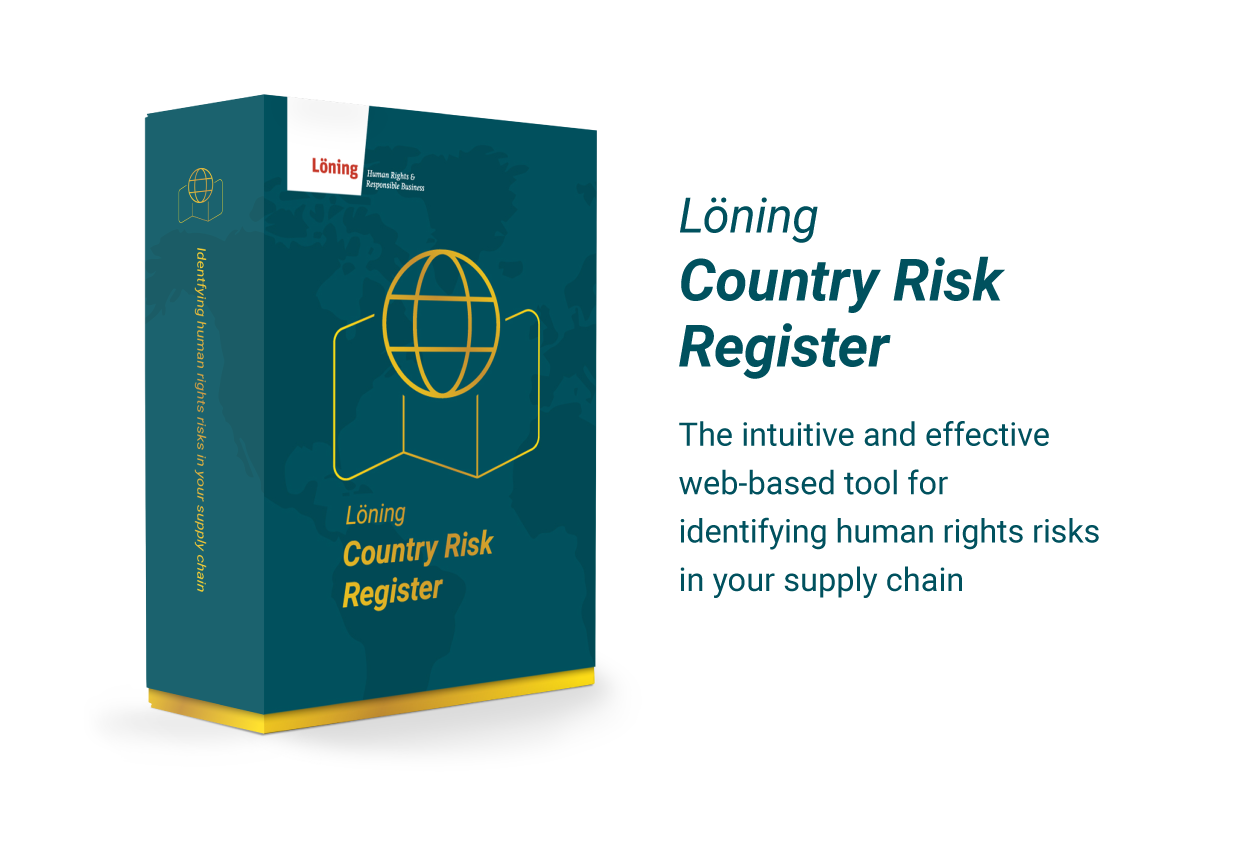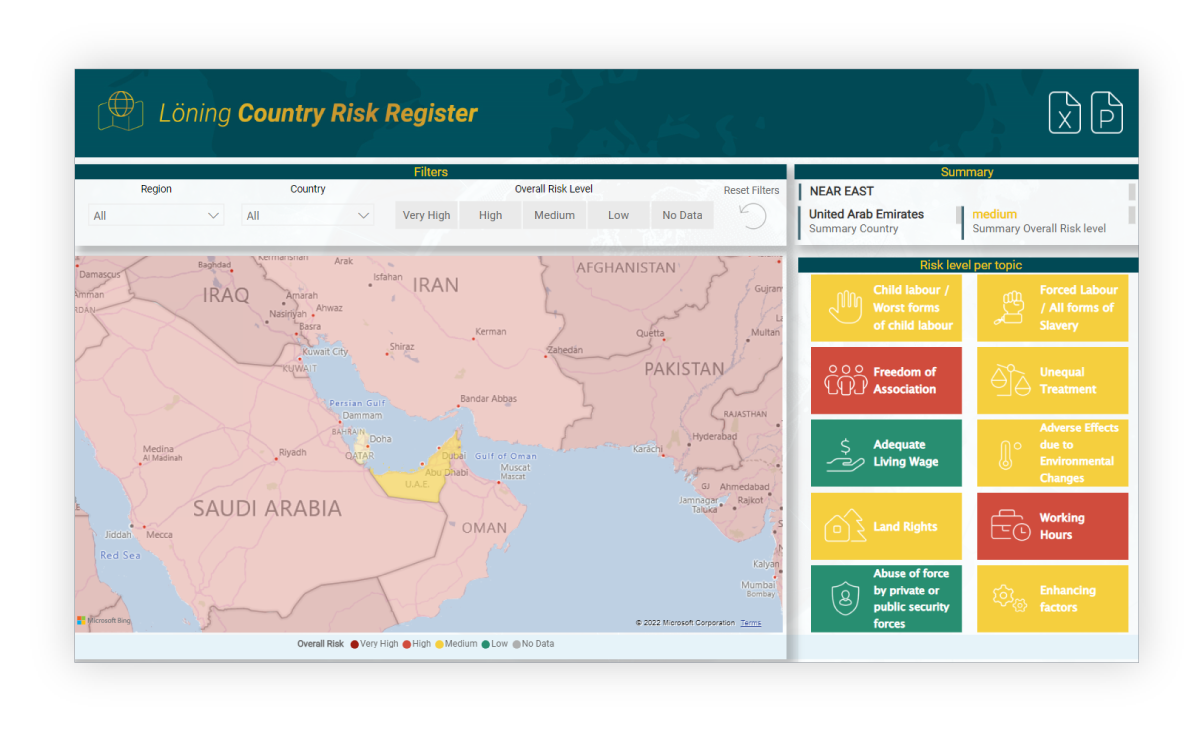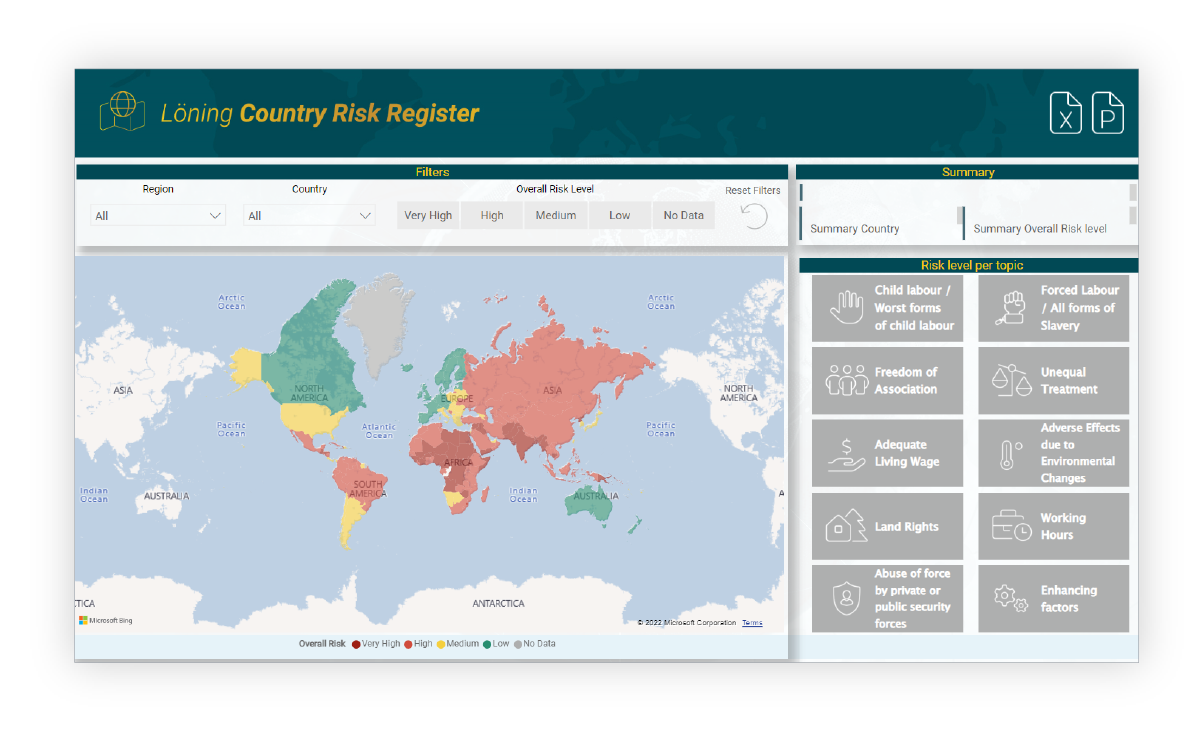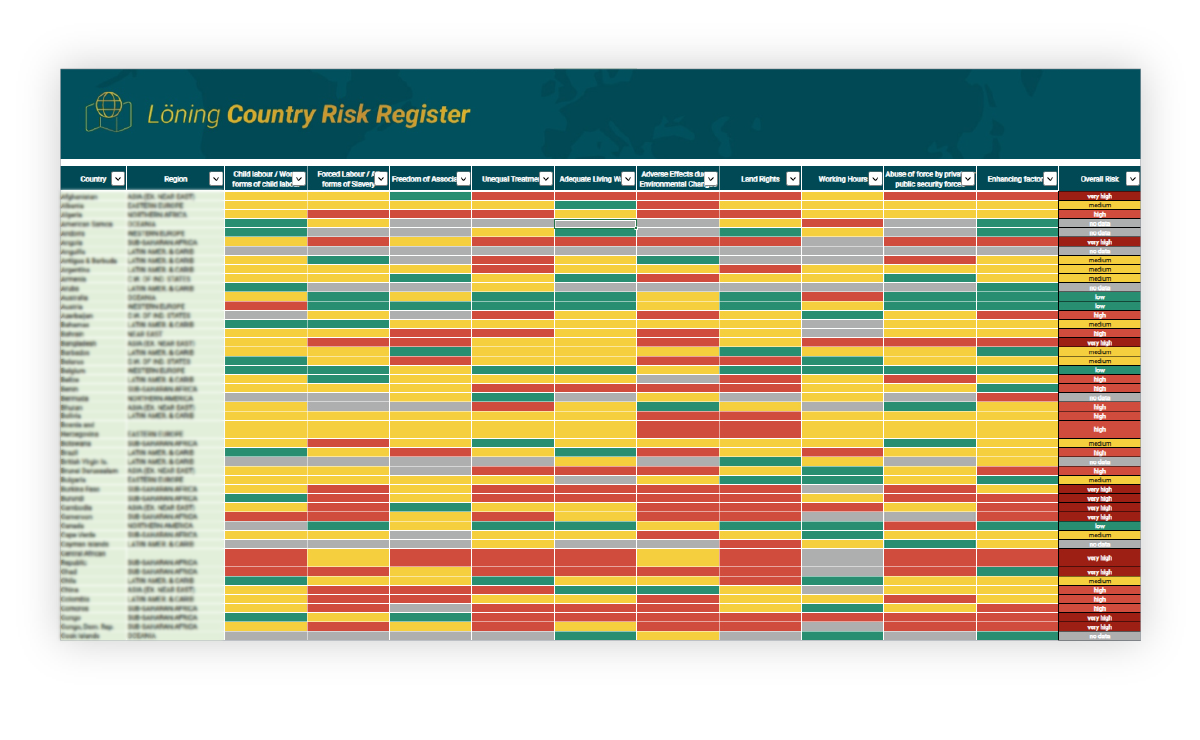Identifying human rights risks in the supply chain can be a challenging task for companies. Let us make it easy for you.
The Löning Country Risk Register includes scores for 190 countries and 10 different human rights risks.

The Löning Country Risk Register includes scores for 190 countries and 10 different human rights risks.
Legislators, clients and ESG rating agencies are putting businesses under increasing pressure to manage human rights risks in their supply chains.
What does embedding human rights into business practice require?


How do you go about this? The Löning Country Risk Register offers you an easy and effective tool for identifying and assessing human rights risks:
In creating the Löning Country Risk Register, we’ve applied all our business and human rights expertise and translated indices into country-specific risk levels for core business-relevant human rights aspects.
The Löning Country Risk Register enables you to assess human rights risks associated with the countries where your own operations and supply chain activities take place.
The data in the Löning Country Risk Register is in line with the latest academic research and legal requirements, including the German Supply Chain Act (LkSG).

The Löning Country Risk Register contains more than simply an overall risk level per country – it also provides risk levels per country according to selected risk categories.
Intuitive and effective, the Löning Country Risk Register covers almost all countries in the world, allowing for first-level assessment of human rights risks in the supply chain.
“With the Löning Country Risk Register you can identify country-specific human rights risks – in both your suppliers’ operations and your own – so that you can minimise them.”
It’s for you if you’re looking to assess human rights risks in the countries where your operations take place.
It’s for you if you’re looking for a new supplier or seeking to prioritise audits with existing suppliers.
It’s for you if you’re required to implement a human rights risk management system under the LkSG.
Does the Löning Country Risk Register include the country you’re looking into?
We’ve got you covered!
Get your subscription here.
Sorry, there isn’t enough data available to
assess the risk in this country.
Find out more under FAQ.
Human rights risks in the business context are very much dependent on the overall human rights situation of a given country – it’s not simply a question of the sector or specific business activity. Some governments are not willing or able to effectively protect the rights of their citizens, which increases the risk of abuse for people living and working in these countries. In order to effectively manage human rights risks, it’s essential to be aware of these country-specific risks.
The human rights risk analysis is at the heart of human rights due diligence. By providing country-specific information on various human rights risk topics, the Löning Country Risk Register can serve as an essential part of every human rights risk analysis, whether for a company’s supply chain or their own operations. By providing information not only about the overall country risk, but also about specific human rights topics, such as child labour or freedom of association, the CRR can serve as a sound source for identifying risks related to the countries where your suppliers or your various company sites are located.
The BAFA implementation guidelines on risk analysis recommend considering risks not only by sector, but especially by country, too. The Löning Country Risk Register helps you to achieve a country risk perspective.
If a country is not covered in the Löning Country Risk Register, it means that there is not enough data available to provide a sound risk rating for this country. The lack of information comes with the need for heightened human rights due diligence if you are to operate in or source from this country.